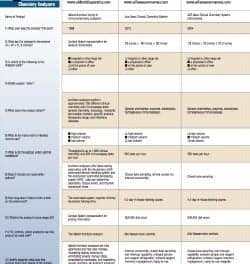Developer of lateral-flow and rapid diagnostic technologies, services, and products, Mologic, Thurleigh, UK, has begun a major clinical trial with University College London Hospitals (UCLH) to evaluate the company’s point-of-care diagnostic for the early detection of sepsis.
The trial is being led at UCLH by Mervyn Singer, MD, professor of intensive care medicine, a global expert in sepsis and critical care, and lead author of the new international sepsis definitions.
Organ failure resulting from an infection affects approximately 30 million people every year, with more than a quarter of cases resulting in death. Sepsis survivors often have an impaired quality of life that may be permanent. The financial and societal burden of sepsis is thus highly significant. The chances of survival may improve if the condition is recognized early and treated promptly. However, early detection is difficult.
Mologic is developing a novel, high-performance point-of-care test leveraging lateral-flow immunoassay technology and a panel of six host biomarkers to aid in the diagnosis of infection and early detection of sepsis. The assay will use an algorithm to detect emergent sepsis, aiming to differentiate it from less-critical infections and from noninfectious complications. The test will deliver a qualitative result in 10 minutes. The work is supported by a grant from Innovate UK.
“Early detection of sepsis continues to be a challenge, with single biomarker diagnostics not delivering sufficiently specific results,” says Joe Fitchett, MD, medical director at Mologic. “Improved point-of-care diagnostics are needed to detect sepsis early and initiate life-saving interventions. Mologic’s multibiomarker panel provides rapid, clinically actionable results with the potential to transform how sepsis care is delivered.”
Singer says that the symptoms of sepsis “are often nonspecific in the initial stages,” making early diagnosis difficult. “Prompt and accurate identification will both facilitate appropriate treatment while avoiding unnecessary use of antibiotics in patients who will not benefit,” he says. “The Mologic assay has the potential to be a game changer, as it offers a near-bedside tool that can provide rapid results.”
For more information, visit Mologic.






